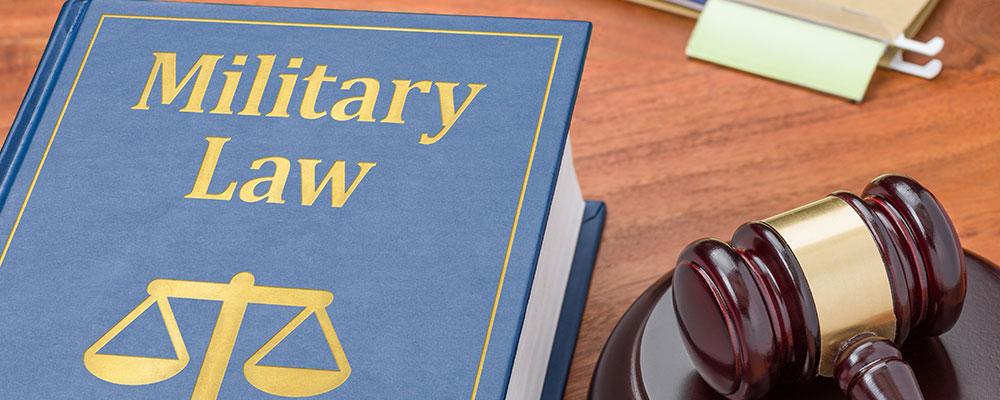Military Law Attorney Overview

Lawyers Assisting Servicemembers With Courts-Martial, Benefits, and Other Legal Issues
People who join the armed forces in the United States make huge sacrifices in order to protect our rights and our freedom. As a member of the military, a person not only has the honor of representing the U.S., but they can also realize a variety of benefits that come with their service. However, this also means that if they need to address certain legal issues, a specific branch of the legal system known as military law will apply to them. This includes the Uniform Code of Military Justice, which affects criminal cases, as well as laws such as the Servicemember's Civil Relief Act and regulations that affect administrative issues within the military and the benefits a person can receive. When addressing these legal matters, a servicemember will want to work with an attorney who is experienced in military law cases.
Military Justice
The Uniform Code of Military Justice (UCMJ) addresses crimes allegedly committed by servicemembers, as well as other violations that can lead to criminal penalties. In addition to facing punishment for actions that would be considered crimes if they had been committed by civilians, members of the military can also be punished for offenses such as insubordination, fraternization, absence without leave (AWOL), or desertion.
In some cases, servicemembers may be able to accept informal, administrative punishments through Article 15 of the UCMJ. This may allow them to avoid a criminal record, and they may even be able to keep the offense off of their military record. In other situations, a person may face a court-martial, which is similar to a criminal trial. If a person pleads or is found guilty, a variety of penalties may apply, including confinement in a military prison, reduction in rank, forfeiture of pay, bad-conduct discharge, or dishonorable discharge. The accused can be represented by a civilian attorney, and if they are found guilty, they can appeal the verdict or sentence or apply for clemency.
Disability, Discharge, and Veteran's Benefits
Some members of the military may face a discharge due to a physical or mental disability that has allegedly made them unfit for duty. In these cases, they will be subject to a review by a Medical Evaluation Board and a Physical Evaluation Board. These boards will review a person's records and any other relevant information to determine their fitness for duty. If the Physical Evaluation Board determines that a servicemember is unfit to serve, it will make recommendations regarding the person's discharge from military service. Depending on the type of discharge, a person may be eligible to receive ongoing benefits. A servicemember may then request a formal hearing to dispute the findings of the Physical Evaluation Board, and they may be represented by an attorney.
Following an honorable discharge from the military, a person will usually be eligible for certain benefits, including healthcare, retirement, or disability benefits. Other benefits include home loans guaranteed by the Department of Veterans Affairs (VA) and education or vocational training under the GI Bill. Spouses and children of servicemembers may also be able to receive healthcare or educational benefits. If a veteran experiences any issues receiving the benefits they are eligible for, an attorney who is experienced in military law, health care law, and ERISA cases can help address these concerns.
Civil Cases
Under the Servicemembers Civil Relief Act (SCRA), a member of the military is protected from certain types of civil actions while they are deployed on active duty. This can ensure that a person will not be subject to a default judgment because they are unable to appear in court, and if a civil action is filed, a stay will be imposed for up to 60 days after a person is discharged from active duty. The SCRA may affect bankruptcy cases, including those involving foreclosure proceedings or repossession of property, and it can protect a person against eviction. It may also play a role in military divorce cases, including situations where an ex-spouse is seeking child support or spousal support. When addressing civil litigation matters, servicemembers will want to be sure to obtain representation from an attorney who understands how military law applies to these cases.















